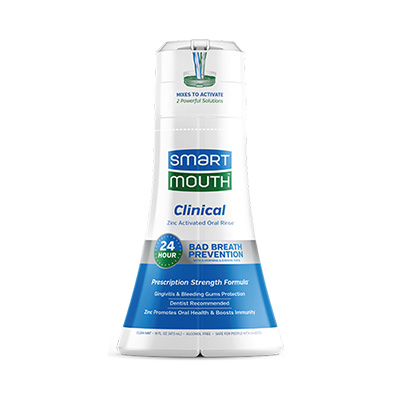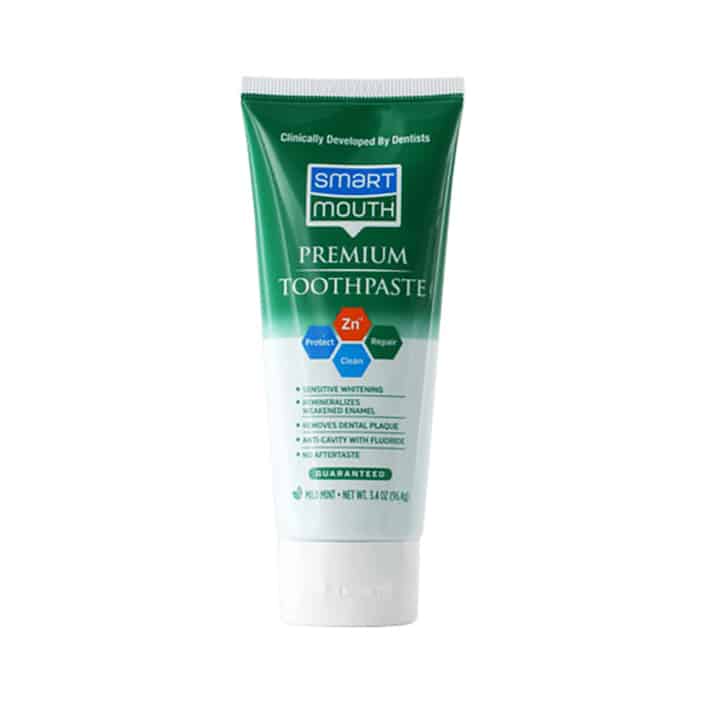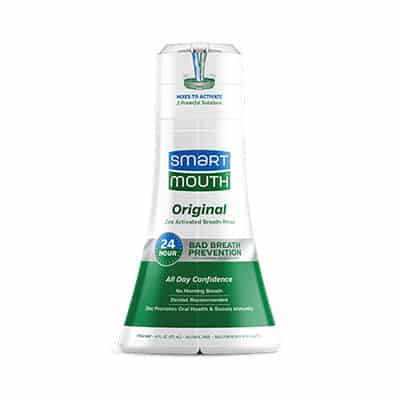Why Do Low-Carb Diets Cause Bad Breath?
Individuals who follow a low-carb diet such as Paleo, Atkins, South Beach, or keto suffer disproportionately from halitosis or abnormally bad breath.
Simply put, bad breath results when naturally occurring germs (bacteria) eat protein particles and then produce sulfur gases (bad breath). High protein intake provides a feeding frenzy for oral bacteria, leading to increased production of volatile sulfur compounds (VSCs) such as methyl mercaptan, dimethyl sulfide, and hydrogen sulfide.
Some high-protein, high-fat diets push the body into a state known as ketosis in which the body uses fat for fuel instead of carbohydrates. The process of burning fat via ketosis releases compounds known as ketones, which can cause foul-smelling breath and general body odor problems.
How To Get Rid Of Bad Breath Caused By High Protein Diets
Follow these steps to help solve the problem.
- Stay hydrated: A dry mouth is a breeding ground for the production of sulfur and other bad-breath gases. Plus, many dry mouth products leave an oily feel that does little, if anything, to stop bad breath. Hydration is an important first step to prevent dry mouth.
- Use a sulfur-eliminating oral rinse: It’s easy to fall into a trap of thinking that germ-killing alcohol or products with an overwhelming minty sensation will lead to clean, fresh breath. In reality, alcohol dries your mouth and exacerbates bad breath. Plus, rinses that rely on a strong mint flavor to mask the problem can provide food to the sulfur-producing bacteria located in pockets of biofilm, in turn accelerating the production of bad-breath gases. SmartMouth’s patented technology works in two ways: The eliminating solution instantly neutralizes any existing bad breath gases, and the activating solution releases zinc ions that prevent bacteria from consuming protein and producing new sulfur gases for 12 hours per rinse.
- Check your daily protein intake: Foul-smelling dragon breath, as it’s referred to within the low-carb community, can be caused by consuming too much protein or, oddly, eating too little protein. For this reason, if your bad breath persists, speak to a medical doctor or licensed nutritionist to ensure you’re consuming an ideal amount of protein per day for your activity level and body type.
- Introduce fats and some carbs: If you can meet your health goals without going into ketosis, consider increasing your carb intake to above about 50 grams per day to keep the body out of ketosis. Research suggests increasing your fat consumption may also help improve bad breath caused by a low-carb diet. Try replacing some of the protein sources you’re eating with nuts or seeds high in healthy fats, such as almonds, walnuts, or sesame seeds.
- Maintain Proper Oral Hygiene: Halitosis caused by low-carb dieting is possible even if you’re adamant about oral hygiene. However, it’s still the first line of defense to brush after eating at least twice per day, use a sulfur-eliminating oral rinse, floss daily, and use a tongue scraper to break up the bacteria trapped in biofilm on the back of your tongue.
When to See a Doctor
Bad breath has many causes. In some cases, health conditions such as sinus infections, gastrointestinal issues, metabolic disorders, acid reflux, and cancers can cause it. If your bad breath persists, visit your doctor to rule out serious causes.
Conclusion
Low-carb diets can lead to bad breath, or halitosis. For example, when your body goes into ketosis on the keto diet, you can develop a type of bad breath called keto breath. You can help prevent bad breath from low-carb diets by drinking more water, practicing good oral hygiene, using a mouthwash, and following your doctor’s recommendations. See your doctor if symptoms continue as bad breath can be a sign of different illnesses.
Sign up today for coupons, offers and updates!
At SmartMouth, we love saving you from bad breath, but we also love saving you money.






